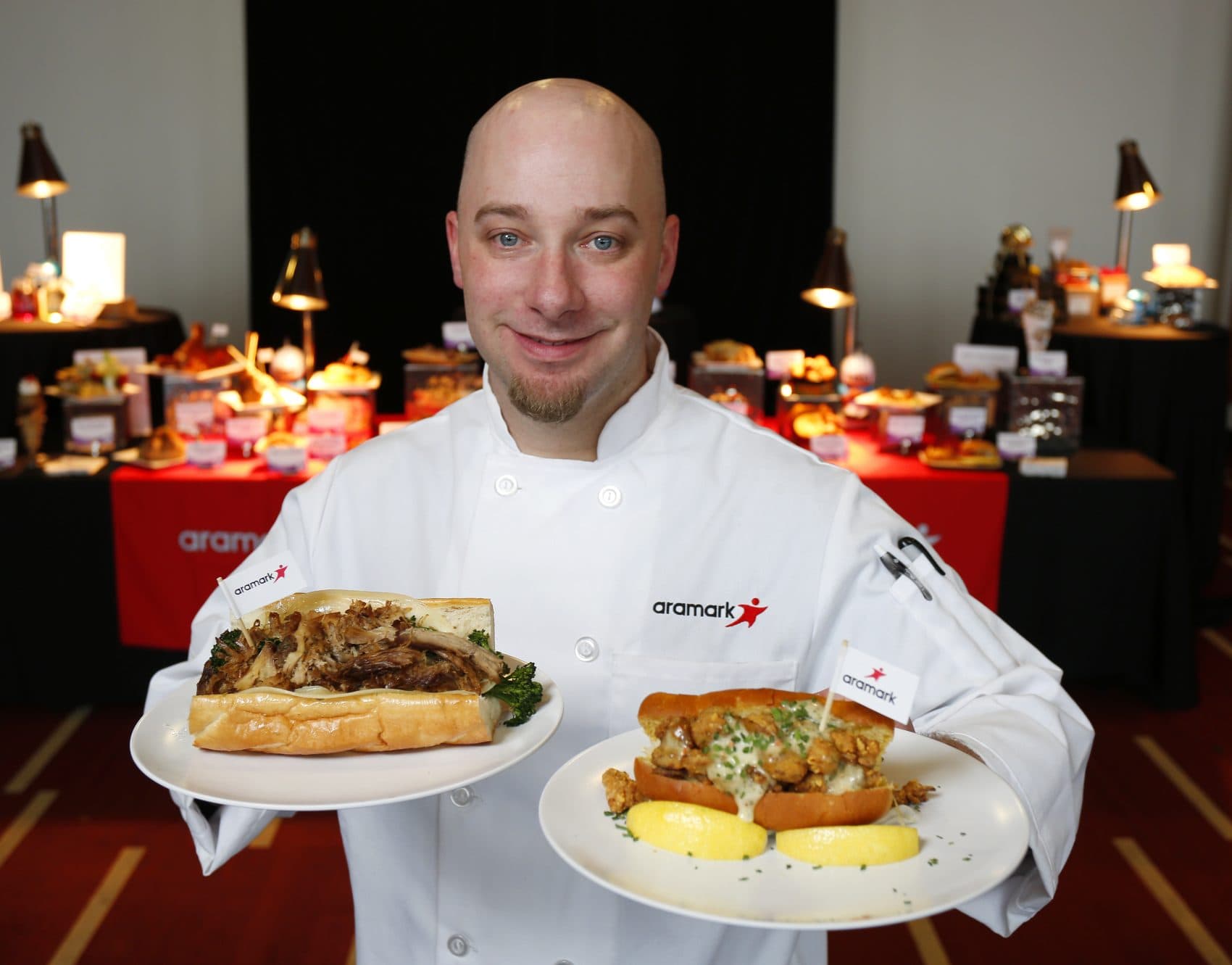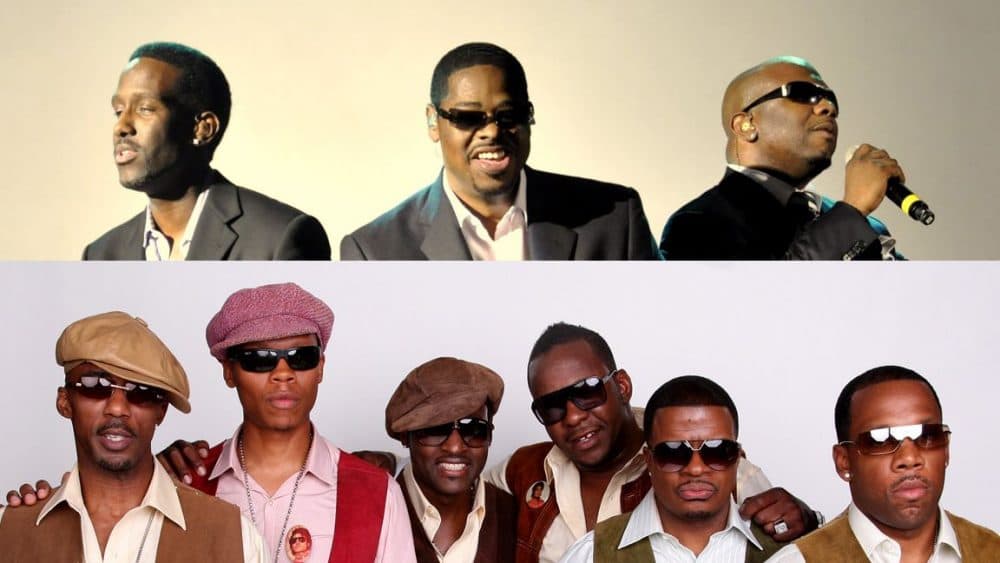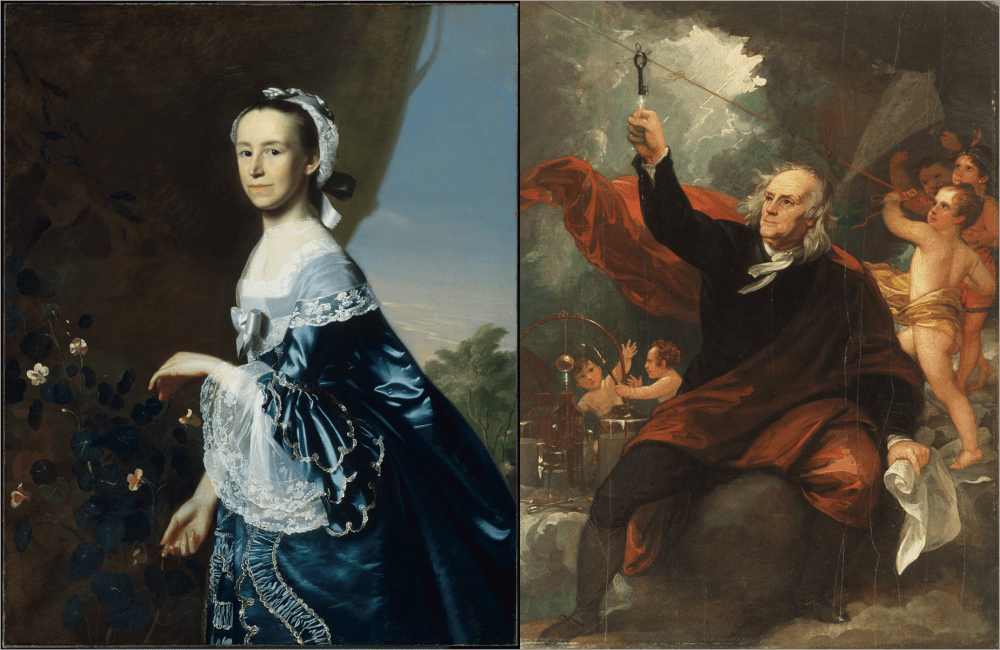Advertisement
Lobster Roll Vs. Cheesesteak? Yo-Yo Ma Vs. The Roots? It's The Boston-Philly Cultural Super Bowl

As we all know, the New England Patriots will be defending their title as Super Bowl champions against the Philadelphia Eagles Sunday night.
Now, I grew up in Delaware, home to exactly zero professional sports teams so I always gravitated toward Philadelphia teams. But let's face it, the Eagles have exactly zero Super Bowl titles — compared to their Pennsylvania rivals, the Pittsburgh Steelers, the current title holder of most Super Bowl wins at six. I’ve lived in Boston for the past three years, so I've developed a taste for winning. I won’t say where my allegiances lie now for fear of starting a war between friends and family, but I did see this as an opportunity to compare the cities in a way I know best: through culture.
Both Boston and Philadelphia have rich histories surrounding the founding of the nation. Both cities served as important markers of history: Boston was the site of the Boston Tea Party and the start of the Revolutionary War. Philadelphia was the location where both the Declaration of Independence and the United States Constitution were signed and ratified. From these historic events alone, while Philadelphia ranks in planning, Boston ranks in execution. Arguably, both are necessary.
Historic sites are getting in on the Super Bowl action. The Old North Church in Boston and the Betsy Ross House in Philadelphia have a wager: If the Eagles win, the Old North Church will raise the 13-star "Betsy Ross" flag on site. If the Patriots win, the Betsy Ross House will hang two lanterns representing the famous signal that warned of the Redcoats' raid on Concord which signified the start of the American Revolution.
The theatrical institutions in both cities also have a long and influential history. Philadelphia is home to the Walnut Street Theatre, the oldest continually operating theater in the United States. The Boston area is home to the American Repertory Theater, which originated eight Broadway-bound productions within the last 10 years — no Philly theater can compare to that number.
Musically, both cities have notable bands from the area. Boston is the home of bands like Boston (duh), Aerosmith and New Edition. With homegrown venues like Paradise Rock Club, Brighton Music Hall and the Middle East, local and national acts have made their mark in New England. Philadelphia has its own fair share of famous musical acts, like The Roots, Boyz II Men and Hall & Oates. Popular music venues in Philly include the World Cafe Live, Theatre of the Living Arts and the Electric Factory. As a music lover myself, I’ve seen performances throughout Boston and Philadelphia. My first concerts growing up were in Philly, so there’s a heavy nostalgia filter on the City of Brotherly Love for me. Also, it's kind of hard to compare The Roots to anyone, in my opinion. Historically, there's also dozens of other insanely recognizable songs that define the Philly Sound. What you got, Boston?

The Boston Gay Men's Chorus and the Philadelphia Gay Men's Chorus are entering in a musical bet of their own. If the Pats win, the Philadelphia choir has to sing "Please come to Boston" and post it on their official YouTube page. If the Eagles win, the Boston choir has agreed to perform "Philadelphia Freedom" and post it online. Either way, I at least get to see a bunch of talented musicians sing about my two favorite cities.
I can’t forget to mention the classical music giants in both cities — the Boston Symphony Orchestra and the Philadelphia Orchestra. Symphony Hall, where the BSO rocks out, is a registered National Historic Landmark. When gaining the title of “historic landmark” the committee noted that, “Symphony Hall remains, acoustically, among the top three concert halls in the world and is considered the finest in the United States.” In Philadelphia, the orchestra is based at the Kimmel Center for Performing Arts, a venue that opened in 2001, so not yet old enough to get the “historic landmark” certification.
Both the Boston Symphony Orchestra and the Philadelphia Orchestra are a part of the “Big Five” orchestras in the country, though Boston seems to be ahead by a touchdown with the orchestra's prestigious Shostakovich recordings on Deutsche Grammophon (OK, this section is clearly for a niche audience). Also, Boston has Yo-Yo Ma, who was my first introduction to classical music thanks to the children's television show "Arthur." The two orchestras have developed a wager of their own: The conductor of loser of the Super Bowl has to wear the winning team's jersey during a rehearsal — tame in my opinion, but savage for those classical music folks.
The Museum of Fine Arts in Boston and the Philadelphia Museum of Art are both getting into their own culture war during the Super Bowl. In Boston, the MFA is lighting its facade in red, white and blue to show support for the Pats. In Philly, the Museum of Art will be hanging a Philadelphia Eagles banner on their own facade against Philly's own (fictional) bronze champion, Rocky. Both museums are participating in a Twitter battle using the hashtag: #MuseumBowl for some “art-inspired trash talk.” I, for one am excited about some culturally specific throwdowns.
Both institutions have also created a friendly wager: If The Eagles win, the MFA will loan "Mrs. James Warren (Mercy Otis), circa 1763" by John Singleton Copley. If the New England Patriots win, the MFA will receive "Benjamin Franklin Drawing Electricity from the Sky, 1816" by Benjamin West. Both pieces will be on temporary loan for an agreed amount of time.

The art museums aren’t the only institutions involved in this cultural Super Bowl. The Boch Center in Boston and the Kimmel Center for the Performing Arts in Philadelphia are both creating their own wager. Both institutions house touring Broadway shows and other high-profile events.
The wager will follow the outcome of Sunday’s game. The loser of the Super Bowl has to buy the winning team lunch, so either a lobster roll or a cheesesteak (why not both?). Not only does the losing team buy the other team lunch but the staff is also required to post a group photo on social media with employees wearing the winning team’s colors, which is pretty brutal in my opinion. The last part of the bet involves displaying the winning team’s mascot on Boch Center and Kimmel Center signage.
Now, I don’t know who decided the wager results, but whichever side did is certainly confident of their team’s ability to win.
Everyone loves an underdog story, and NOBODY outside of New England loves the Patriots but, to be honest, this transplant from the mid-Atlantic is probably going to be happy either way.

